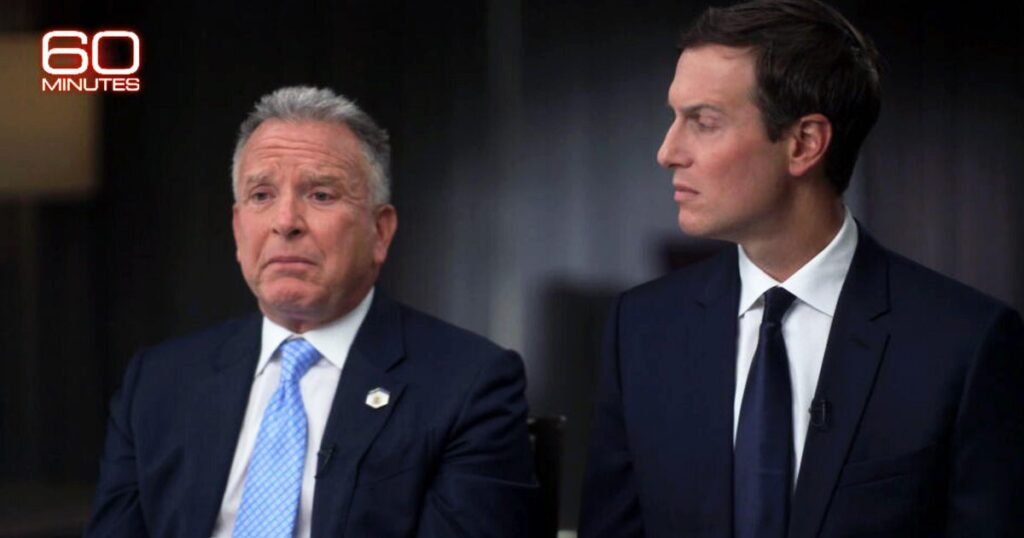Jared Kushner and Steve Witkoff: Insights on Israel-Hamas Negotiations
In a recent exclusive interview on "60 Minutes," Jared Kushner and Steve Witkoff, pivotal figures in President Trump’s administration, shared their perspectives on the tumultuous negotiations involving Israel and Hamas. According to their account, both men felt a sense of betrayal following Israeli airstrikes in Qatar during a critical phase of peace talks.
The Impact of Israeli Airstrikes on Qatar
The airstrikes, which Israel claimed were aimed at high-ranking Hamas officials residing in Doha, disrupted the delicate negotiations. Witkoff first learned about the strikes the day after they took place, and noted that they not only jeopardized the talks but also strained relations with Qatari officials, crucial intermediaries in the negotiations.
“I think both Jared and I felt… a little bit betrayed,” Witkoff explained to "60 Minutes" correspondent Lesley Stahl. This feeling was echoed by Kushner, who indicated that Trump viewed the Israeli actions as counterproductive and out of control. “It was time to be very strong and stop them from doing things that he felt were not in their long-term interests,” Kushner stated.
The Role of Qatar in the Negotiation Process
Qatar’s involvement was instrumental, serving as a vital link to Hamas. Witkoff explained the consequences of the airstrikes: “It had a metastasizing effect because the Qataris were critical to the negotiation, as were the Egyptians and the Turks. We had lost the confidence of the Qataris. And so Hamas went underground, and it was very, very difficult to get to them.”
The breakdown of trust not only complicated the existing negotiations but also hampered efforts to engage Hamas directly. The resulting confusion led to a significant setback, highlighting the intricacies and sensitivities involved in international diplomacy, especially in conflict zones.
Progress Towards Peace: A New Deal
Despite the turbulence caused by the airstrikes, Israel and Hamas eventually managed to reach an agreement. The deal stipulated that Hamas would release all remaining hostages in exchange for Israel’s withdrawal to a previously agreed line. Recent reports confirmed that on Monday, 20 living hostages were released, and Hamas also returned the remains of other hostages.
Future Directions: The 20-Point Peace Plan
The full segment featuring Kushner and Witkoff will air on 60 Minutes on Sunday. Their discussion will delve deeper into their face-to-face meetings with Hamas during negotiations and the complexities surrounding the upcoming 20-point peace plan. This plan aims to address several key issues, including disarmament, troop withdrawal, rebuilding efforts in Gaza, and establishing a framework for post-war governance.
As the situation continues to evolve, the insights from Kushner and Witkoff provide essential context into the labyrinth of Middle Eastern diplomacy, illustrating the intricate balancing acts required to foster peace in a volatile region.
Conclusion
The journey towards a lasting peace between Israel and Hamas remains fraught with challenges. Yet, through continued dialogue and strategic engagement, there lies the potential for a meaningful resolution that could reshape the landscape of the region for years to come. As these negotiations advance, the world watches closely, hoping for a sustainable path forward.
By exploring the dynamics behind the negotiations and understanding key players’ insights, it becomes evident that collaborative efforts are vital to achieving peace in a region where history has shown the complexity of coexistence.


